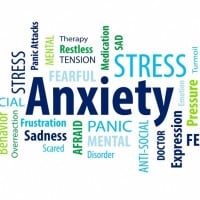Top Ten Worst Things About Having Aspergers Syndrome
I already made a list of Best Things About Aspergers Syndrome, so I decided to make a list of worst things.The entries on this list are both based on facts and personal experiences.
I have Aspergers Syndrome myself, and I'm not trying to insult other people.
This is a reason why it's so easy for me to get influenced: I take a lot of things that people say, even jokes, literally.
This can lead to some unpleasant situations.
I don't have Aspergers, (I'm just on the high end of the Autistic Spectrum) but almost all these really pop for me.
I don't really have trouble expressing any emotions, but I barely cry myself. This doesn't mean I can't be emotional. When I feel like it, I can cry. Not often, but on occasion

This means that you have very sensitive senses, which has positive, but also negative effects.
Like if there's a kind of food that really stinks in my opinion, I can smell it better and from a longer distance, and I can be sensitive to loud noises at times.
Which is exactly why I think I'm too sensitive at times when sensitivity isn't that bad unless it's excessively hypersensitivity. I don't think I'm extremely hypersensitive though
Loud music, little kid squeals, balloon popping, fireworks all suck. Also one time in a resturant I could smell gross cleaning chemicals and nobody else could.
This is frustrating for me at times.
In my previous list, I said that people with aspergers syndrome are very talkative.
But not when they meet new people.
I don't really like becoming acquaianted, so when a person who is unknown to me comes over at my house, it takes a long time before I eventually interact with that person.
It takes a while for me to keep normal eye contact with these people. You can call this extreme shyness as well

This completely depends on the friendship. If I can trust my friends, it could last without too much problems, but if they are distrustful, it's a different story
I'm always afraid that when I do something wrong, that it can result in the ending of a friendship.
I'm misunderstood. Some people think I'm a bad friend because I prefer alone time and stuff
This can lead to a lot of misunderstandings.
Yes, this. I had no idea this was associated with Aspergers, but I hate unexpected changes. When things come suddenly and change without knowing, I have no idea how to respond to it and I get worried usually.
Like when the teachers say we get to watch a movie but we end up not beif able to I meltdown. I try and control it but sometimes I Can't help it.
When I was younger, and something changed in a routine, it leaded to some pretty frustrating situations.

I didn't know Aspergers could lead to anxiety and it's sucks a lot
I have a lack of social interaction, especially having fear of eye contact and being scared to talk to anyone, mainly when I talk to them for the first time

I can tell you that this is very annoying because it causes oversleeping a lot. In fact, I wake up half an hour later than I need which causes stress and worrying. The only way to change this is to sleep earlier I guess
Only sleeping problem is that I move around in my sleep (not sleep walk, just rolling around and stuff) and fall off the bed sometimes. Thankfully never happens in top bunks.
Not all individuals have this, but I have this.
I often wake up too early and I have trouble returning to sleep sometimes.
This isn't that big of an issue, but it is a bit unpleasant at times.
I don't have this a lot anymore, but I still have a bad handwriting.
Very, I say the wrong thing and then later find out I have unsalted that person or made them feel uncomfortable for whatever reason I said what I said. This all comes down to having Aspergers Syndrome and how I talk to people,...
Speech impediment as a matter of fact. Not sure which one I have, but I can't talk in a certain rhythm and I can't say whole sentences sometimes
I think due to the lacking agility to understand, comprehend quickly social situations, and inhibitions tend to tongue tie one. Then the punching bag stuff comes in. You get aggrivated, and it worsens.

This can be especially tough for individuals who are not fond of mainstream music, entertainment and other Neurotypical things.
